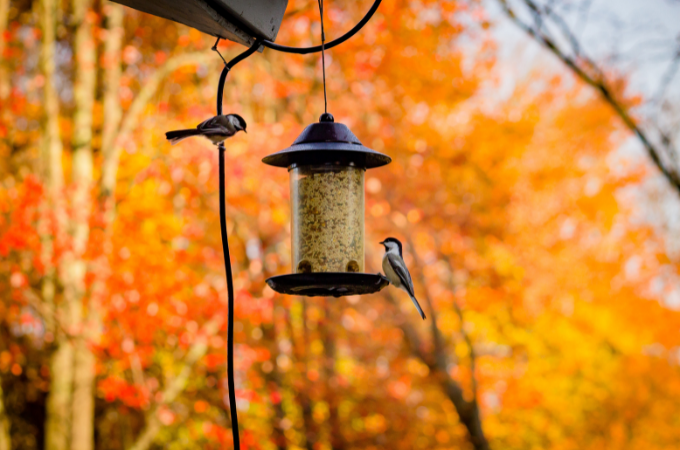
It is one of those Sunday afternoons driving home from your mother’s. The sun—racing alongside, peeking through trees, leading, beckoning us to come. The car windows are open, and the deafening breeze, warm from midday’s heat, rushes in and out as it pleases. You say something, which is swallowed quickly by gusty air.
My thoughts, intrusive, wander back to your mother’s home, where unclear fragments of the argument I overheard between you and her lay out before me. I remember the look on your faces as I rushed into the family living room looking especially for you after hearing raised voices from the garden.
On such visits after we’d had devoured food prepared specially for us, I’d find myself in your mother’s large backyard, filled with pockets of gardens; a display of carefully arranged fruit-bearing plants, herbs, vegetables, and foliage of flowers. There, I’d wait for her to come take our usual stroll through the gardens, inspecting and helping with each plant we came across. This had become our ritual after she’d seen how keen I was on learning about her plants, a shared interest. I hear her say “This plant can be used to treat inflammation, and tumours and even helps to ease rheumatism,” pointing to pesky Turnsole bushes that had managed to invade. It had found a place around the Mandeville twines and the Hibiscus shrub. I run my fingers through its Lavender-colored flowers, listening to the Red-cheeked Cordon-bleus chirp while seeking aphids from the Rose bushes to feed. But this day, she never comes.
I hear your voice first, broken in anguish with a repeated, “Why? Why? Why?”
Then follows your mother’s high-pitched and brisk authority. I’ve witnessed her use this voice when faced with what she deems as incompetence—usually with the domestic staff. She calls out your full name, in the native intonation that allows the first letter to roll around one’s tongue, letting the following alphabets flow out through the air so that it blends with the blues of birds and sounds of swishing tree branches and rustling dead leaves on the ground.
I hesitate to go into the house, but with quick strides, I find myself in the living room where you both are. The look on your faces—yours, filled with staunch rigidness that it never has been accustomed to, and your eyes revealing a sadness that I feared I may never cure. Hers, exuding that of someone who has tasted something unpleasant—clearly disgusted. That look on her face would insist on itself whenever I think of this day.
We leave earlier than we would have. I realize how quiet you were once we began the long drive home—yet, still almost spurting “Everything has come undone”. I notice there are no warm packs of Tupperware filled with delicacies for us to take back, “Two young bachelors with no woman to cook for you,” she’d say, heaping spoons of soups and stews into them. There are no bunches of plantain, cut down from the tree planted at the centre of the backyard or even a tuber of yam nestled at the back of the car harvested from the farm in the village. Neither was she at the gate to say farewell, telling us to drive carefully, as she had always done. It would be the last time I would see her or her garden.
“I told her about us,” you say. This time the air fails to claim the words and it latches on to my ears, screeching. I see the words begin to materialize; swimming—almost iridescent, tainted with hues of the sun, the sky, and trees as we speed past. “About us.” The words ring as they float before my eyes. “Us,” as in two beings, separate, now recognized as an entity, as one and the same. I look out the window and let the breeze—prickly and dry, blow on my face. I knew you’d expect me to say something— “anything really,” as you’d say, each time I shut down when confronted with a myriad of emotions I cannot manage. You stare at me before giving a heavy exhale. We remain silent for the rest of the drive home.
We are several years from that day. It is the middle of February, but the December weather remains, and our sky is draped in a haze from harmattan’s dust. It is early evening, and we stand on the veranda of our flat, inspecting the twines we had put up for the vines we potted the day before. We had begun to grow our own garden.
The sun is setting, and a much cooler evening breeze begins to blow, turning flowers from our little garden into a sea of vibrant colours. You wrap your arms around me keeping the chill from the breeze away. In time we’ve found synergy in motion that is accustomed to lovers with years of practice with one another’s bodies.
I wonder how we’ve managed to conjure up a love once imagined. How we’ve come past dreams of days and midnight slumbers yearning for love requited.
I rest my head on your shoulder as we watch the sunset, it leaves the world around us golden. I close my eyes, muttering a silent prayer—hoping our garden flourishes, hoping our love flourishes against all odds, to fill up spaces in uneven places. I hear you speak softly about the yellow-bellied sunbird on its regular visit to inspect our floral work. We stay as still as we can, not to startle it away. We watch as it draws nectar from the Wandering Jew’s budding flowers, singing in approval.
I drink it all in. This moment, how everything seems in place. Everything. Our love inclusive, in all its natural form, as it ought to be.
Photo by Bonnie Kittle on Unsplash



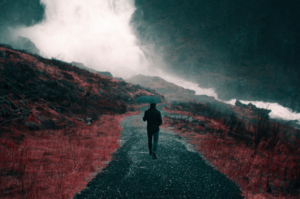
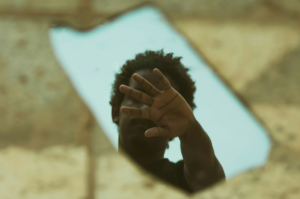

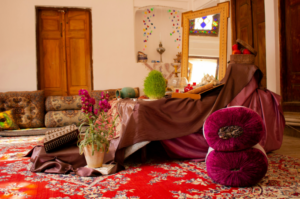
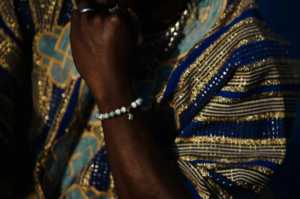
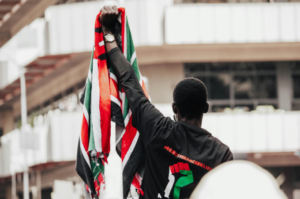

COMMENTS -
Reader Interactions